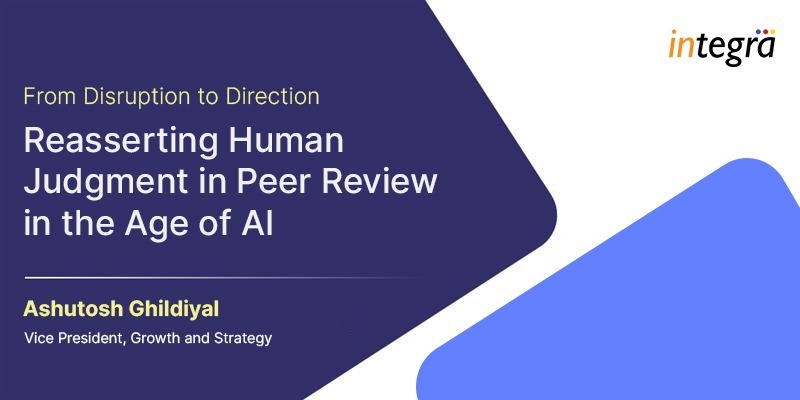The Future of HR: Integrating AI for Smarter Talent Management

The Human Resources (HR) landscape is undergoing a rapid transformation driven by a sense of urgency among HR leaders. According to Gartner a staggering 38% have already explored or implemented Artificial Intelligence (AI) solutions to improve process efficiency within their organizations. This surge in adoption reflects the growing recognition of AI’s potential to address the evolving challenges of talent management. Traditional HR practices, while valuable, are often limited by scalability and the inherent biases of human decision-making. AI, however, presents an opportunity to streamline processes, personalize experiences, and ultimately, build a more strategic and efficient talent pool.
The Future of HR: Integrating AI for Smarter Talent Management
The Human Resources (HR) landscape is undergoing a rapid transformation driven by a sense of urgency among HR leaders. A staggering 38% have already explored or implemented Artificial Intelligence (AI) solutions to improve process efficiency within their organizations. This surge in adoption reflects the growing recognition of AI’s potential to address the evolving challenges of talent management. Traditional HR practices, while valuable, are often limited by scalability and the inherent biases of human decision-making. AI, however, presents an opportunity to streamline processes, personalize experiences, and ultimately, build a more strategic and efficient talent pool.
The Human Touch Meets AI Innovation
One particularly exciting aspect of AI in HR is the emergence of generative AI, with capabilities akin to human-like text generation. A significant 76% of HR leaders contend that organizations failing to embrace and integrate AI technologies, such as generative AI, within the next 12 to 24 months risk falling behind in achieving organizational success compared to their counterparts who do adopt these technologies. Tools like ChatGPT are capturing the attention of HR leaders seeking to save time and resources for their teams. Chief Human Resource Officers (CHROs) are eager to understand and experiment with generative AI’s potential to:
- Reduce resource-intensive processes: Imagine automating tasks like creating personalized job descriptions or crafting initial interview emails. Generative AI can handle these repetitive tasks, freeing up HR professionals for more strategic initiatives.
- Eliminate mundane tasks: Standardize responses to frequently asked employee questions or automate the generation of basic reports. Generative AI can streamline these administrative burdens, allowing HR to focus on high-impact activities.
- Co-author HR-related content or documentation: Generative AI can assist in drafting policies, handbooks, or training materials. It can provide initial drafts based on best practices, allowing HR professionals to review and infuse their expertise.
The potential applications of AI solutions extend far beyond content creation. Generative AI, alongside other AI advancements, can be leveraged across the entire HR spectrum:
- Talent Acquisition: AI can streamline sourcing, screening, and candidate matching, leading to a more efficient recruitment process.
- Voice of the Employee: AI can analyze employee sentiment from surveys and communications, helping HR proactively address concerns and improve engagement.
- Career Development & Learning: AI can personalize learning paths based on individual needs and goals, fostering a culture of continuous learning.
- HR Service Management: AI-powered chatbots can provide 24/7 support for basic inquiries, freeing up HR professionals for more complex issues.
This focus on efficiency aligns perfectly with HR leaders’ priorities. A study revealed that 63% aim to leverage generative AI for improved efficiency, closely followed by enhancing the employee experience (52%).
Enhancing Employee Engagement with AI
Beyond monitoring engagement, AI can also play a crucial role in fostering employee growth and development. AI-powered learning management systems (LMS) and virtual tutors can personalize training programs based on individual skillsets and career aspirations. Additionally, AI can analyze performance data to identify skill gaps and recommend relevant training opportunities, ensuring employees are continuously equipped for success.
AI-Driven Performance Management
Traditional annual performance reviews are often seen as impersonal and outdated. AI can facilitate a shift towards continuous performance feedback. AI tools can track key performance indicators (KPIs), identify areas for improvement, and provide real-time feedback to employees. This not only improves employee motivation but also allows for more accurate talent development strategies.
Ethical Considerations and Best Practices
While AI offers immense potential, ethical considerations surrounding privacy, bias, and transparency need to be addressed. It’s crucial for HR professionals to carefully choose and implement AI solutions that comply with data privacy regulations and are free from inherent biases. Open communication and transparency throughout the process are essential to ensure trust and employee buy-in.
Case Studies
Explore this case study where a leading provider of innovative financial solutions, deployed an AI-powered LMS to address inconsistent learning experiences and a lack of readily available training materials. This resulted in a 20-30% increase in the availability of comprehensive learning resources and a 5-20% increase in uniform knowledge and skill acquisition across teams. Additionally, performance metrics improved by 25-30%. This case study exemplifies the transformative power of AI in addressing talent management challenges.
Conclusion
AI is undoubtedly transforming the future of HR. Businesses that embrace AI solutions will gain a competitive edge in talent acquisition, development, and retention. Integra, with its commitment to innovation, is a knowledgeable partner well-positioned to guide your organization on this exciting journey of smarter talent management through AI. Feel free to connect with our team at Integra to know how AI/ML solutions can benefit your organizations HR efforts.
Recent Blogs

Print, Pedagogy, and AI: The New Architecture of Educational Publishing

From Disruption to Direction: Reasserting Human Judgment in Peer Review in the Age of AI


